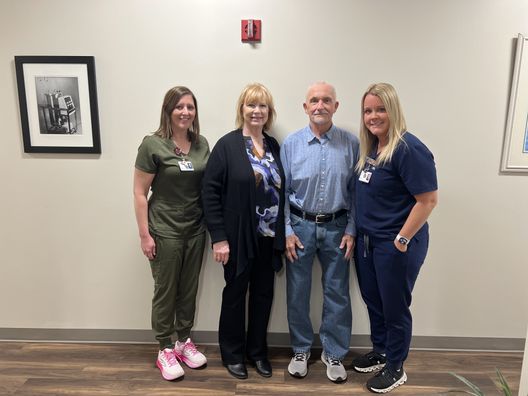When a loved one is diagnosed with dementia stemming from Alzheimer’s, understanding your options for care is important. Our Neurology team at Quincy Medical Group (QMG) can help you find your path for the best treatment.
November is National Alzheimer’s Month. QMG Neurologist Dr. Daniel Kimple answered a few questions about the importance of the diagnosis and treatment of this disease.
What are some early signs patients should be aware of?
“Dementia refers to brain disorders that affect memory function. Alzheimer’s is one type of dementia but additional other causes of dementia exist,” Dr. Kimple shared.
Symptoms that may be seen in Alzheimer’s dementia include: misplacing objects and feeling forgetful, difficulty with reasoning skills, problems with activities of daily living such as understanding bills and remembering appointments, struggling with navigating new situations, or getting lost in places that previously were familiar.
Who is most at risk for developing Alzheimer’s?
Issues with memory aren’t always associated with dementia, Dr. Kimple said.
“It is important to know that sometimes memory problems are caused by things other than dementia such as medication side effects, vitamin deficiencies, anxiety, stress, and depression. “
How has treatment for Alzheimer’s evolved over the years?
“Historically there have been medications which may be helpful in Alzheimer’s dementia but there has not been a cure for the disease. More recently in June, the FDA approved through an accelerated approval pathway a new medication which explored treating the disease through a different pathway. The certainty of this drug’s long-term benefit still needs to be explored,” Dr. Kimple explained.
How can caregivers, family, and friends best support a person with Alzheimer’s?
Dr. Kimple stated, “People diagnosed with Alzheimer’s may really benefit from supportive friends and family particularly discussing living situation safety, discussing decision making about money estate planning and driving.”
He added that it is important to encourage and never shame a person with dementia as it is a disease that affects a person without their control.
If you have concerns for yourself or a loved one, Dr. Kimple suggests speaking to your primary care provider. Your provider can speak to you about your symptoms and may refer you to a neurologist for a thorough neurological exam.
For more information on our QMG Neurology team, visit https://quincymedgroup.com/medical-services/neurology/ or call (217) 222‑6550, ext. 3434.
Health Topics:







